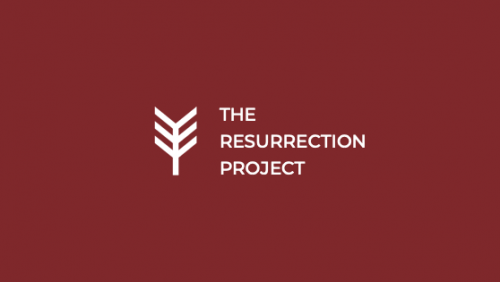The Resurrection Project questions FDIC’s reckless decision regarding Second Federal Savings Bank

Published: August 14, 2012
Dear Friends and Supporters,
Today, an article in Crain’s Chicago Business voiced our discontent with the decision and lack of transparency by the Federal Deposit Insurance Corporation (FDIC) regarding their actions with Second Federal Savings Bank. We feel that the FDIC’s decision recklessly places Latino families on Chicago’s Southwest side at risk. The entire article can be read here.
The FDIC essentially gave away Second Federal Savings Bank’s deposits—totaling $175.9 million—to Wintrust Financial Corporation for $100,000 despite a higher bid made by The Resurrection Project, One Pacific Community Bank, and Self Help Credit Union. Wintrust also declined to purchase Second Federal Savings’ $150 million in mortgage loans made to predominantly Latino families. These loans will now be auctioned off by the FDIC, and potentially expose thousands of Latino homeowners to a new wave of predatory lenders.
Second Federal Savings (SFS) was a pioneer in serving the financial needs of Southwest side neighborhoods like Little Village and Back of the Yards, as well as the west suburb of Cicero—communities with predominantly Latino populations—for the last 50 years. Its primary core business activity provided 1 to 4 unit residential mortgage loans to immigrants, allowing hard-working families to become first-time homeowners. They were the first stop for thousands of immigrant families to start a savings account. SFS was also a Minority Banking Institution or MBI (a dying breed). These types of institutions provide access to financial services that are otherwise unavailable for low-income households, as well as minority and immigrant families who are underserved by mainstream financial institutions.
According to a Pew Research Center report in July 2011, Hispanics suffered the greatest decline in wealth (40%) from 2005 to 2009 since the majority of their wealth is tied to their home. Not surprisingly, institutions such as SFS experienced a decline in their asset quality as families struggled to pay their “underwater” mortgages. As required by its charter, the FDIC placed SFS in receivership and auctioned it off. In auctioning struggling banks the FDIC is supposed to pursue the “least costly resolution,” presumably a deal that avoids hefty losses while keeping open an institution that best serves its depositors and borrowers.
Inexplicably, the FDIC essentially gave away SFS’s $175.9 million in total deposits to the wealthy Hinsdale Bank & Trust of Hinsdale (HBTC), Illinois, a unit of Wintrust, for a nominal fee of $100,000. This amounts to a mere .0568 percent—a “gift” to a wealthy institution that has no history, no experience, and likely no intentions of serving Southwest side communities since HBTC was not interested in buying any of the SFS loans held by families in the community.
The FDIC’s sale to HBTC employed reckless public policy by essentially putting over 1000 families at risk of further foreclosures and eliminating community banking services for working-class families. Thousands of families are completely unaware of the financial wrecking ball that awaits them since the FDIC plans to auction off these loans through loan brokers who will ultimately liquidate the loans to investors who have no connection or concern for the local neighborhoods. The FDIC has made it clear that its priority is to maximize investor return instead of responsibly providing loan modifications or workouts to SFS homeowners who could otherwise avoid foreclosure and eviction.
In its July 20, 2012 press release the FDIC stated the following: “compared to other alternatives, HBTC acquisition was the least costly resolution for the FDIC.” This is deeply troubling as The Resurrection Project, a community development corporation with a strong history of working in the Latino community in the Southwest side of Chicago, One Pacific Community Bank, and Self Help Credit Union submitted a more competitive bid than HBTC. Specifically, the bid included the purchase of the three SFS branches at full appraised value, and all of the deposit relationships with Second Federal at a premium of $860,000. Most importantly, this bid included an offer to purchase all of SFS’ loans, approximately $150 million of primarily single-family home loans. This bid also committed $20 million of new equity to capitalize SFS, preserving key staff, branches, and home loans so that SFS could once again re-invest in the local neighborhoods.
The Resurrection Project and Self-Help Credit Union were poised to assist many of the families to remain in their homes and modify many of the loans in accordance with the true value of the property. Self-Help is one of the strongest community development financial institutions in the country. Its lending has focused on home loans to families of color for more than 25 years in North Carolina and California. Self-Help has provided more than $6 billion of financing to families and homeowners that have been underserved by traditional financial institutions. Self-Help’s history and community commitments are very similar to those of SFS. The Resurrection Project, founded by a group of local community churches, is one of the largest community development organizations in Chicago’s Latino community. Since its inception, The Resurrection Project’s mission has been to create healthier communities, and it has leveraged more than $250 million in community reinvestment.
The recent Dodd/Frank Act supports the preservation of MBIs whose mission is to serve the financial needs of their community. The last thing communities in the Southwest side need is another large wealthy bank giving lip service while not doing any real lending. Self-Help and The Resurrection Project’s intentions were clear and in line with the mission of Second Federal. It is incomprehensible why FDIC policies continue to support wealthier institutions—in this case by $175.9 million—while leaving families at the mercy of future financial predators and leaving working-class communities, who are not asking for gifts or handouts, scratching their heads trying to understand what they were thinking.
Sincerely,
Raul Raymundo
CEO, The Resurrection Project

